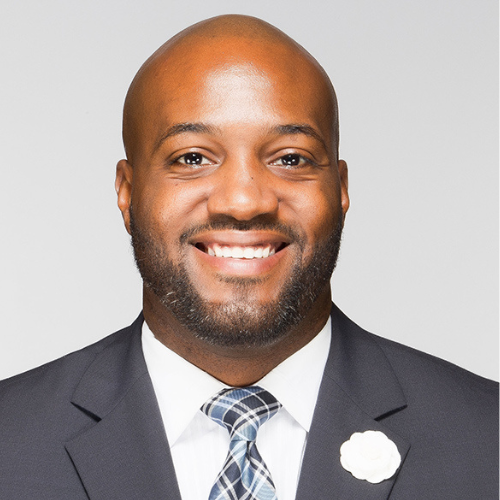Commentary on Mark 1:1-8
WAKE UP!
Like a splash of cold water on the face, Mark’s Gospel begins with a jarring, almost en media res proclamation that this is the beginning of the gospel of Jesus Christ. This sets the stage for the entirety of Mark’s Gospel, the shortest of the four and the most fast-paced, with its short sentences, action verbs, and a narrative that focuses more on what Jesus says than what he does. After a quick orientation with a scripture from Isaiah, John “appears” in the wilderness, proclaiming a baptism of repentance for the forgiveness of sins. There is no birth narrative, no poetic pericope describing Jesus’ heavenly origins, just a quick dive into the work of John the Baptist preparing the way for Jesus.
On this second Sunday of Advent, we might learn from the urgency of this text. We may not know exactly what we are preparing for, but whatever it is, it is for RIGHT NOW! There is no time to waste in this endeavor. And the people in the text weren’t wasting much time making their way to John either. Something was beginning.
Advent is a time of new beginnings for our contexts, for a reminder of the foundations of our faith, a recommitment to what defines us, and an opportunity for us to wake up and make pathways straight for Jesus to come into our communities anew. Sermons from this introductory passage might attempt to help communities and congregations WAKE UP to where Jesus needs to be (re)introduced. Are there issues or community struggles that need an Advent reexamination? What is missing and needs a genesis in our contexts? What resets are necessary in our spaces? This urgent beginning can serve as a springboard to new beginnings in our congregation, new opportunities for good news to take root.
John the attractive
Since John merely appears in this passage, we are left to speculate about what made John, and John’s baptism, so popular to the masses. And while hyperbole is clearly at play in this text, the notion that multitudes of people were flocking to John for his baptism is curious. Why John’s baptism? What about John and his baptism made them special? Why trust him or his baptism? What makes one approachable or trustworthy in this context?
His location in the wilderness and his peculiar clothing did signal a certain kind of prophetic bona fides. His camel-hair frock and leather belt would have signified a connection to Elijah (2 Kings 1:8). The peculiar diet, locusts and honey, also would have nodded to Elijah as they demonstrated a kind of desperate dependence on God for sustenance that mirrors what Elijah went through by the brook Cherith (1 Kings 17:4–6).
But still, what made him special enough for the multitudes to flock to him? Sermons that attempt to describe why John or his baptism was so attractive would help our communities prepare for the Advent season. What made John’s baptism attractive is what our communities need in this season: something to motivate return, repentance, and rededication.
One thing that seems clear, though, is that the people were passionate about something that would affect them right then and there. This was not a baptism or even evangelism that pointed toward an afterlife; they were rushing to the wilderness for something that would change their lives at that moment. The good news then, by extension, might also be something that we talk about primarily as affecting our communities right here and right now. What good news can we proclaim for our people that will excite them about Advent today?
Maybe it wasn’t John at all that they were interested in. Maybe it was the idea of confessing. The people were excited not only about getting to John, receiving the baptism, but also about confessing their sins. It seems that the combination of the baptism ritual and the confession of their sins was a cleansing process that allowed them to return to their communities not only with a newfound commitment to their faith but also free of the burden of those sins.
With all the rituals and traditions that we have for Advent, might confessions be amplified in our liturgies during this season? Or, particularly on this Sunday in Advent, possibly even worked into the confines of the sermon, might we offer more opportunities for confession so that our congregations will have an opportunity to find this same kind of excitement and release?
Sandal-strap fear and trembling
Though we find the reference to John’s unworthiness to untie Jesus’ sandals elsewhere, the way that it is presented in Mark’s Gospel offers a direct reference to power that makes me wonder about the reactions that he may have received. John says in verse 7, “The one who is more powerful than I is coming after me; I am not worthy to stoop down and untie the strap of his sandals.” John is making an exaggerated statement minimizing his own worthiness in order to amplify Jesus’ status. The addition of the detail about untying the strap is a further step in minimizing his status.
But there is something about naming that the one coming next has more power that makes me wonder what kind of responses those getting baptized, or first readers of the Gospel, may have had. Meeting and interacting with someone with so much power that I can’t even perform the lowly duty that a slave would perform for their master is not an attractive statement. I might be afraid, bewildered, perplexed, or maybe hesitantly excited. Would I even want the baptism that someone with that kind of power or status offered? Could it be that the things that were attractive about John and his baptism might not be present in this secondary baptism?
Preachers have an opportunity to play with the myriad of reactions one might have to this implied invitation, an apropos endeavor as we acknowledge that not everyone will find the gospel message attractive.



December 10, 2023